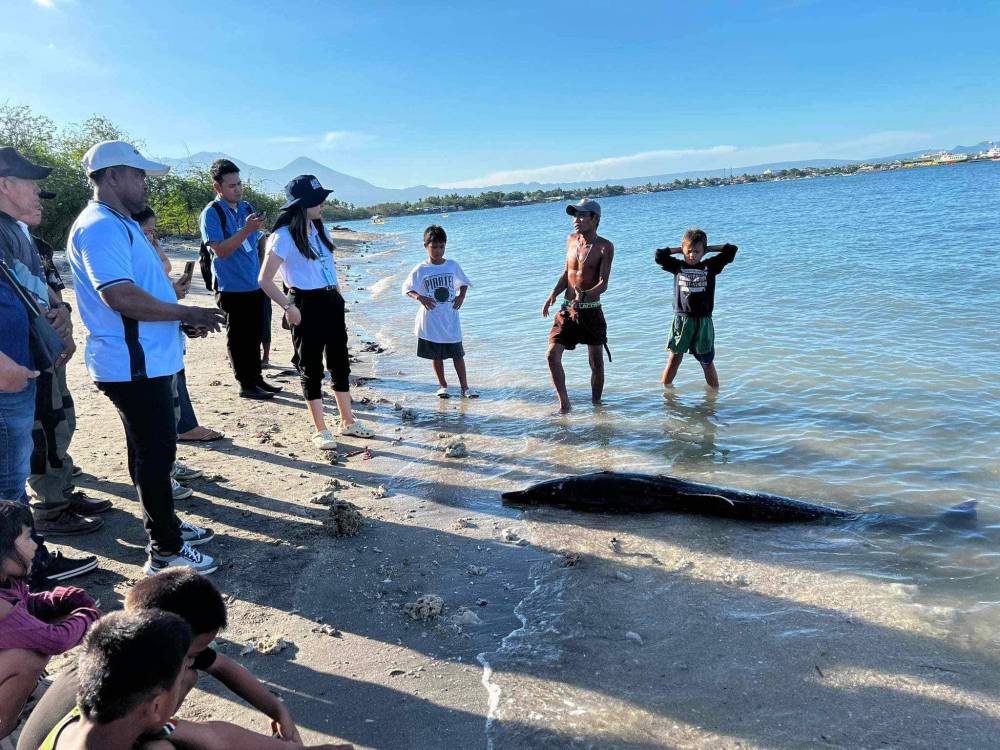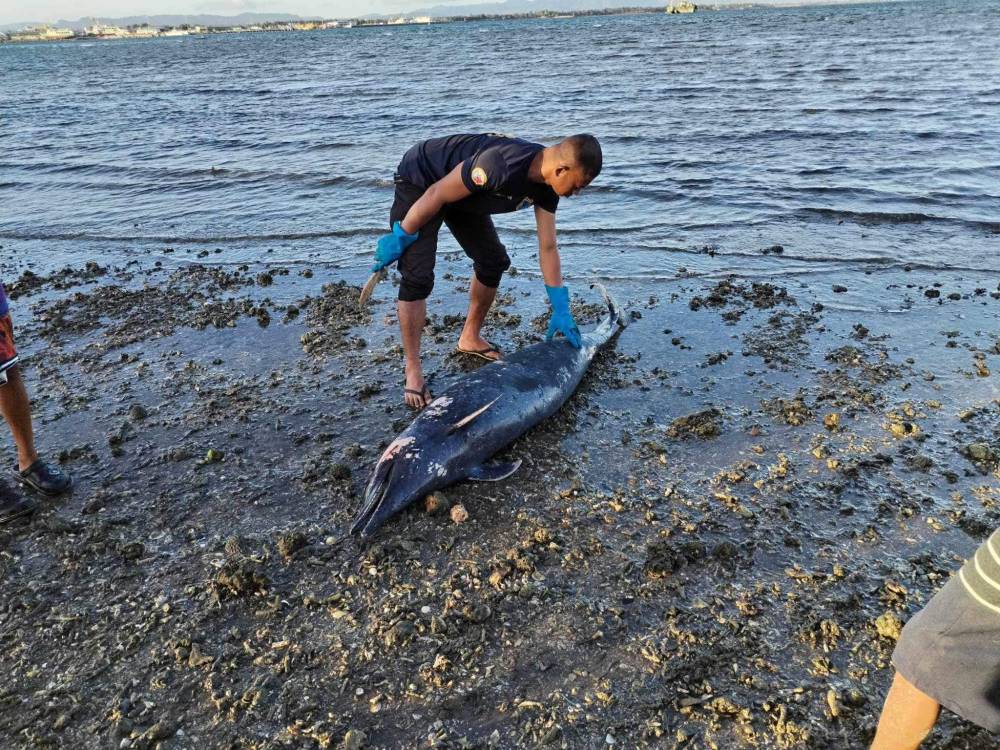One more dead dolphin washed ashore in Quezon

LUCENA CITY—Environmentalist group Tanggol Kalikasan (TK) has intensified its call for authorities to stop destructive fishing activities in the seas off Quezon province after a pregnant dolphin was found dead along the coast of Tayabas Bay in this city on Monday.
Residents in Barangay Dalahican found the dead mature Pantropical Spotted dolphin (Stenella attenuata) at around 3:55 p.m., the TK said in a Facebook post on Tuesday.
Based on the initial result of the necropsy, the dolphin was pregnant. It weighed about 50 kilos and measured 2 meters and 13 inches long.
“Just like the previous incidents, the death of the dolphin was probably caused by destructive fishing activities,” Jay Lim, TK project officer, said in a phone interview on Tuesday.
Lim anchored his suspicion based on past incidents where dolphins were separated from their pods due to possible disorientation from the effect of dynamite fishing, as marine mammals often lose their acoustic sensors to loud noise, leading them to swim straight toward shallow waters and become stranded.Lim noted that TK had been receiving reports on stranded and dead dolphins and sea turtles in Tayabas Bay, Lamon Bay and Ragay Gulf in Quezon.
He said the stranding of marine species in the Quezon seas “serves as concrete evidence that illegal fishing continues unabated.”
“National and local authorities have to act fast and decisively to end these illegal and criminal operations to save our endangered marine species,” Lim said.
Wounded mammals
An injured dolphin was also found dead along the coast of Mauban town facing the Pacific Ocean on March 21. It bore fatal deep wounds probably caused by a bullet from a firearm.
On March 12, a 50-foot long giant sperm whale that was stranded in the waters off the island town of Panukulan also passed away despite efforts to save her. The whale bore four wounds near the abdomen probably caused by spears.
On Feb. 13, a severely weak Indo-Pacific bottlenose dolphin was stranded on the coast of Unisan town, which died while undergoing treatment. The dolphin likely got separated from its pod due to disorientation from the effect of blast fishing, authorities suspected.
Lim recalled that another wounded dolphin died on the coast of Mauban in 2022. Three years ago, three more dolphins were also stranded on the beach of the locality.

These incidents were “seriously alarming and depressing,” Lim said.
In an earlier interview, Allan Castillo, director of the Bureau of Fisheries and Aquatic Resources in Quezon, said the agency’s vessel, BRP Francisco Dagohoy, has been patrolling the Quezon seas since early this year to combat illegal fishing.
Thirty-four of Quezon’s 42 towns are coastal—17 along Lamon Bay in the Pacific Ocean, 12 off Tayabas Bay facing the West Philippine Sea and five along the Ragay Gulf in the Bicol peninsula. INQ

















